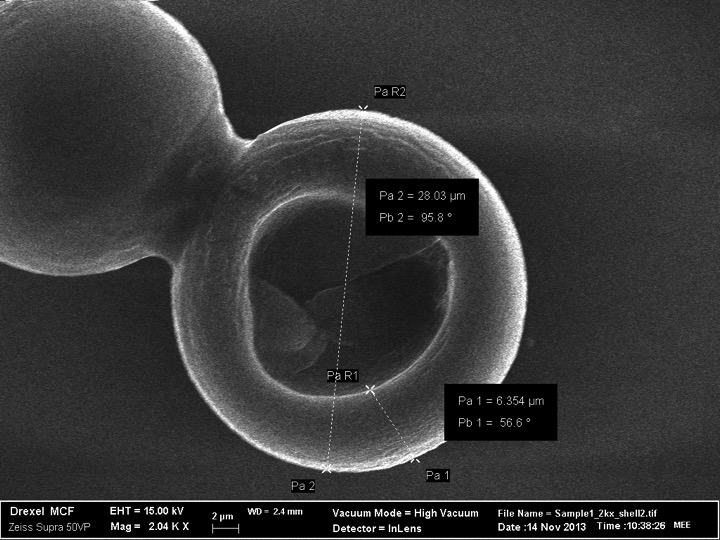 Research image courtesy of Dr. Steven Wrenn
Research image courtesy of Dr. Steven Wrenn
Biological Engineering at Drexel combines engineering principles with knowledge of life sciences toward design of processes and development of tools and techniques with a wide range of applications. Examples include design of fiber optic sensors to detect Wrenn Research precancerous lesions, design and development of piezoelectric cantilever sensors which offer outstanding selectivity (e.g., detection of E. Coli, Anthrax, and other pathogens) and sensitivity (can resolve mass changes at the femtogram – that is, 10-15g – level), development of novel drug delivery systems involving biocompatible hydrogels and biological colloids, and development of techniques to enable measurement of sub-micron domains in membranes of cells, which are important not only for cellular functions (such as signal transduction) but may also play a role in human disease (e.g., atherosclerosis and gallstone pathogenesis). Undergraduate students in chemical engineering can and do participate in bio-related research activities such as those described here. Undergraduates may also take advantage of a recently developed Bio-Track, which aims to equip students with a skill set for entry into the Biotechnology arena. Graduates of the BioTrack can boast the unique ability to design processes involving production and purification of bio-molecules.
Faculty with Research in Biological Engineering
Cameron Abrams
Steve Wrenn
- Biomedical engineering
- Biological colloids
- Membrane phase behavior and cholesterol transport
Raj Mutharasan
- Biosensors
- Biochemical engineering
- Cellular metabolism in bioreactors